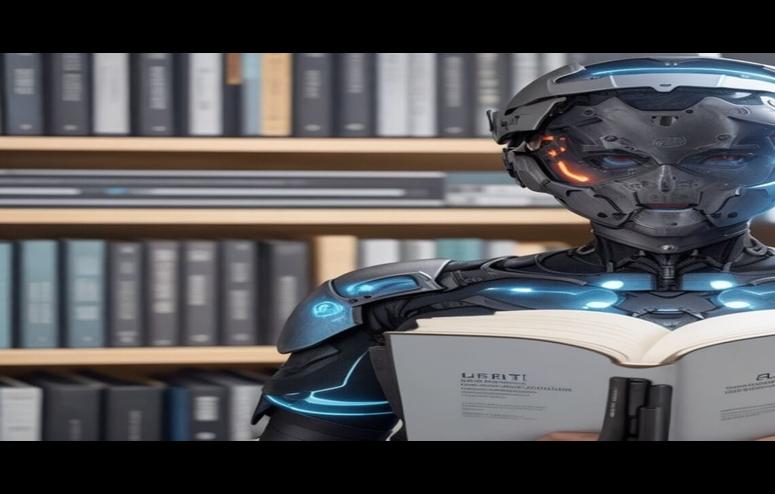Authors Sue OpenAI Over Copyright Concerns

TLDR Authors are suing OpenAI over concerns of copyright infringement due to AI-generated content.
The publishing industry is in a state of panic as AI technology becomes capable of generating vast amounts of text.
Legal battles and complex questions about copyright and fair use are emerging in the AI and authorship landscape.
Authors are taking legal action against OpenAI, a prominent player in the artificial intelligence industry, alleging copyright infringement. Renowned novelists including Douglas Preston, John Grisham, Jonathan Franzen, Jodi Picoult, and George R.R. Martin have joined the lawsuit, voicing their concerns over AI-generated content that appears to draw heavily from their works. This lawsuit reflects the broader anxiety within the publishing industry as AI technology becomes increasingly capable of producing vast amounts of text automatically.
AI’s intriguing abilities and worries
Novelist Douglas Preston was surprised when he tasked OpenAI’s ChatGPT with creating a poem based on one of his characters and received an impressive result. However, this also raised concerns. Preston suspected that the AI had absorbed his work during its training process, sparking feelings of discomfort akin to someone intruding into his creative domain.
A star-studded lawsuit
The lawsuit filed against OpenAI features numerous prominent authors and the Authors Guild, alleging that OpenAI copied their works without permission or compensation to train its AI systems. The plaintiffs contend that AI-generated derivative works harm their market and compete for readers’ time and money. The authors are seeking damages for lost licensing opportunities, market disruption, and an injunction against future such practices.
OpenAI’s response
OpenAI maintains that training AI systems fall under fair use protections, given the transformative nature of AI in processing training data into new content. The company emphasizes its respect for authors’ rights and their potential benefits from AI technology. OpenAI states that it is engaging in productive conversations with creators, including the Authors Guild, to address their concerns about AI technology.
Industry panic
The publishing industry is grappling with the rapid advancement of AI, which enables anyone with internet access to generate extensive written content. Authors and publishers alike are increasingly realizing the extent to which AI has absorbed their data, information, and creativity. This realization has triggered what some describe as “abject panic” within the industry.
Legal battles escalate
Beyond the Preston-led lawsuit, various other groups of authors are pursuing their own proposed class action suits against OpenAI. Sarah Silverman, Paul Tremblay, Mona Awad, Michael Chabon, and many others are among the authors taking legal action, either against OpenAI or other major AI developers, alleging copyright infringement.
In July, the Authors Guild, a professional trade group, sent an open letter to several tech companies, including OpenAI, advocating for consent, credit, and fair compensation when writers’ works are used to train AI models. The letter was signed by prominent authors, including Margaret Atwood, Dan Brown, James Patterson, Suzanne Collins, Roxane Gay, and Celeste Ng.
Control and Ownership
Authors like Michael Connelly express concerns about control over their own creative works. They believe that AI’s use of their characters and stories without their consent or control is a violation of their intellectual property. The notion of AI writing sequels or adaptations of their works without their input is particularly unsettling for many authors.
The legal challenges against OpenAI raise complex questions regarding copyright law and fair use. Recent Supreme Court cases, such as Authors Guild vs. Google and Andy Warhol Foundation vs. Goldsmith, have offered differing interpretations of fair use. The application of these principles to AI-generated content remains uncertain.
Proposed solutions
Stakeholders in the industry are exploring potential solutions to the tension between AI and authorship. Some suggest adopting an attribution standard that allows contributors to AI training data to be identified and compensated. Licensing books to software developers through a centralized clearinghouse is another proposed solution that could provide authors with a new income stream and high-quality training data for AI companies.
Authors remain Open to collaboration
Despite the legal battles, some authors remain open to collaboration with AI technology. Licensing arrangements and cooperation could potentially offer a path forward that benefits both authors and AI developers. However, reaching such agreements has proven challenging in practice.
The legal disputes between authors and AI developers like OpenAI highlight the evolving landscape of copyright in the age of advanced artificial intelligence. As the publishing industry grapples with the impact of AI-generated content, it remains to be seen how the legal system will ultimately address the concerns of authors and determine the boundaries of fair use in this context.
